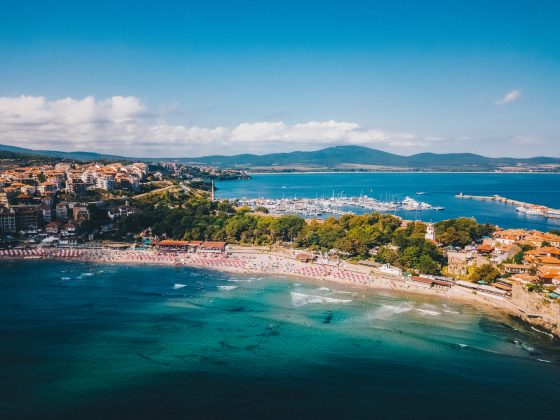Offshore banks and international financial institutions hate to open accounts for cryptocurrency investors. Here are 4 reasons why offshore banks hate cryptocurrency investors and what you can do to open accounts offshore.
First, banks hate cryptocurrency investors because they deposit large sums of money in the bank and then wire it out to a wallet or brokerage that will convert it to Bitcoin. This causes all kinds of issues for the bank.
One of the most common forms of money laundering includes sending wires around the world in an attempt to “wash” the cash or hide its origin. Banks don’t want to be party to any illegal activity, so they don’t like a lot of “in and out” transfers.
To prevent this, some offshore banks have an 80/20 rule. You should keep about 80% of the cash that you deposit in the bank. Thus, you can wire out about 20% to brokerages and other accounts.
The 80/20 rule is most commonly seen in Swiss investment banks and those who make money investing your cash. Because most offshore banks operate as investment banks, and not business or commercial banks, they only make money if you keep cash in the account.
And this gets me to the second reason banks hate cryptocurrency. The more money you hold in a bank the more profit that bank makes on overnights. That is to say, the bank profits from your deposits.
If you send most of your money to a bitcoin wallet, and keep a minimum balance, the bank makes nothing on the account. They have all the compliance costs of reporting and investigating a large account (because you deposited a large amount of money for a day or two) without any of the profits they would usually earn on such an account.
The third reason offshore banks hate cryptocurrency are the compliance costs they incur. Cryptocurrency investors often make a large deposit, so the bank needs to thoroughly investigate the beneficial owner on the account and the source of funds. The bank must be 101% sure the funds are clean and not from illegal activities.
Also, the bank must be sure that the person is tax compliant in his or her home country. If you’re from the United States, the bank must report the transaction to the US IRS under FATCA. If you’re from the EU, the bank has OECD CRS reporting requirements. All of this takes time and money to do.
Again, if you’re account has a large balance for a short period of time, the bank has all of the compliance costs and headaches associated with a large customer without any of the profit incentives.
The fourth reason offshore banks hate cryptocurrency investors is that there is no way for the bank to investigate the source of funds when money is sent from the cryptocurrency wallet back into the bank account.
In theory, you could prove the source of funds if you simply deposited money into a wallet, let it sit there for a while, and then sent all of the cash back to the bank. You could prove that the increase in value was due to appreciation over the time held as a cryptocurrency.
But, what if you’re transacting through your offshore cryptocurrency wallet? What’s the source of incoming transfers? There is no way for anyone to prove that the money being deposited into your wallet is clean. In fact, there’s no way to prove where the money came from and no way to prove how it was earned.
So, offshore banks view cryptocurrency accounts as high risk. There’s no way to check the source of funds coming out of these wallets and the bank could be liable if drug money or other ill gotten gains laundered through their system in this fashion.
Considering that the banks make little money on accounts for cryptocurrency investors, have high compliance and reporting costs because they held money for one or two days, and the risk of being caught up in a regulatory nightmare is high, most offshore banks refuse to open accounts for cryptocurrency investors.
There are a few rays of hope for cryptocurrency in the offshore space. First, several large FX brokerages forming offshore banks and plan to offer currency investing and cryptocurrency investments. The most active jurisdiction for offshore bank licenses is the US territory of Puerto Rico. See: International Financial Entities Licenses in Puerto Rico
Also, I believe blockchain and cryptocurrency are the future of offshore banking. Currently, offshore banks are limited to offering investment banking services. The cost to send a wire is too high to allow them to offer business banking services. Once blockchain is capable of transmitting FIAT currency outside of these high cost legacy systems, offshore banks will be able to compete with local banks and offer all types of services.
I also think ICOs will become the prefered method of capitalizing an offshore bank. For more, see: How to Raise Money for an International Bank.
If you’re looking for a quality bank that will allow you to transact in Bitcoin today, the best are in Panama and Singapore. However, both of these jurisdictions are getting out of the offshore banking industry.
This means that only those with residency in Panama can open an account in Panama. Likewise for Singapore. You must have significant ties to these countries if you want to open an account. That is, you must prove to the bank that you need an account, not that you want an account.
The investment required to get residency in Singapore is about $1.2 million. If you’re from a top 50 country, you can get residency in Panama with an investment of only $20,000. For more on this, see: Best Panama Residency by Investment Program.
I hope you’ve found this article on why offshore banks hate cryptocurrency to be helpful. There are plenty of solutions in the pipeline, but Panama is the only one available today.
If you would like assistance setting up an offshore structure, or with residency in Panama, please contact us at info@premieroffshore.com or call us at (619) 550-2743. All consultations are free and confidential.
Contact Author
"*" indicates required fields
Stay Ahead on Every Adventure!
Stay updated with the World News on Escape Artist. Get all the travel news, international destinations, expat living, moving abroad, Lifestyle Tips, and digital nomad opportunities. Your next journey starts here—don’t miss a moment! Subscribe Now!










